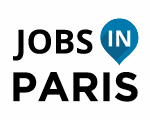Non-regulated professions
In this case, anyone is allowed to do the job and it will be the experience and qualifications of the candidate that the employer bases their decision on. Certificates of studies issued by the Ministry of Education via the education offices (when you become resident in France) may perhaps be used to provide information to the employer, but they have no legal value.
If your profession is not regulated, you can find more information on how to obtain a comparability statement in order to recognise the qualifications you had in your country of origin on this website .
Regulated professions
Professions covered by a sectoral directive (doctors, nurses, dentists, midwives, veterinary surgeons, pharmacists and architects): EU citizens with diplomas from their own countries can freely exercise their profession in another Member State - but you may need to have you qualifications certified by your professional association, depending on the profession. For non-EU citizens, check with the relevant French professional association or the one in your home country.
Professions that are not covered by a sectoral directive: These professions require training and qualification specific to France. These are often professions in the health sector, law, architecture, transport, etc. In this case, the diploma must be recognised by an official body. You can find out here if your profession is regulated in France. For more information contact a relevant government department or the relevant professional association (e.g.: architects: www.architectes.org ; lawyers: www.paris.barreau.fr ; doctors: www.conseil-national.medecin.fr ).
You should be able to get detailed information from the French Chamber of Commerce and Industry (CCI) in your home country and/or in France at the place of your residence (find contact details of French CCIs at the main website www.cci.fr ).


